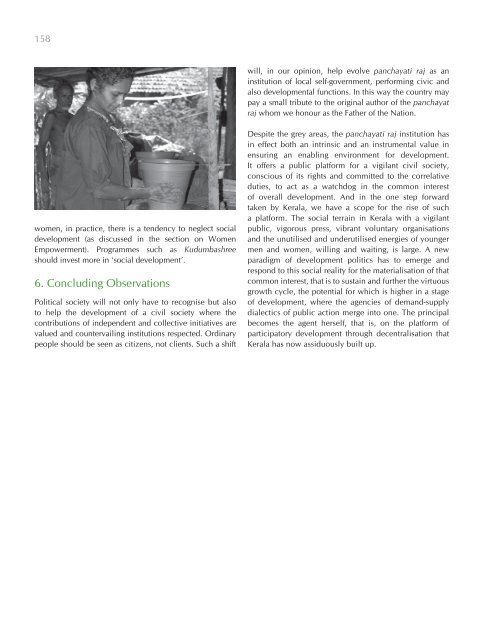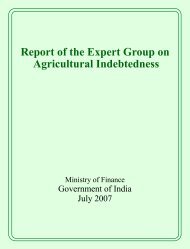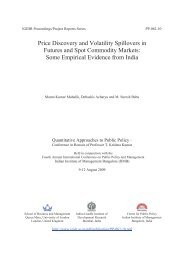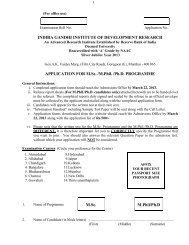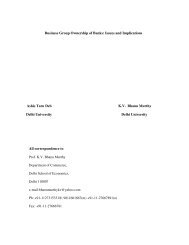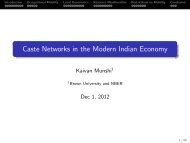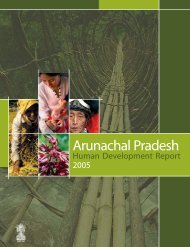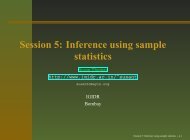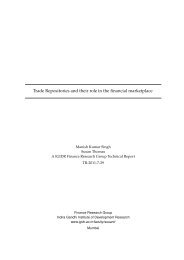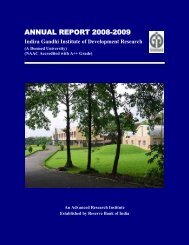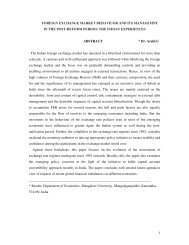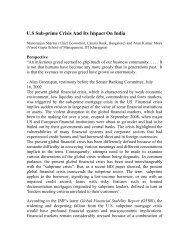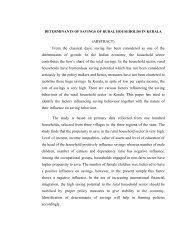Kerala 2005 - of Planning Commission
Kerala 2005 - of Planning Commission
Kerala 2005 - of Planning Commission
Create successful ePaper yourself
Turn your PDF publications into a flip-book with our unique Google optimized e-Paper software.
158<br />
will, in our opinion, help evolve panchayati raj as an<br />
institution <strong>of</strong> local self-government, performing civic and<br />
also developmental functions. In this way the country may<br />
pay a small tribute to the original author <strong>of</strong> the panchayat<br />
raj whom we honour as the Father <strong>of</strong> the Nation.<br />
women, in practice, there is a tendency to neglect social<br />
development (as discussed in the section on Women<br />
Empowerment). Programmes such as Kudumbashree<br />
should invest more in ‘social development’.<br />
6. Concluding Observations<br />
Political society will not only have to recognise but also<br />
to help the development <strong>of</strong> a civil society where the<br />
contributions <strong>of</strong> independent and collective initiatives are<br />
valued and countervailing institutions respected. Ordinary<br />
people should be seen as citizens, not clients. Such a shift<br />
Despite the grey areas, the panchayati raj institution has<br />
in effect both an intrinsic and an instrumental value in<br />
ensuring an enabling environment for development.<br />
It <strong>of</strong>fers a public platform for a vigilant civil society,<br />
conscious <strong>of</strong> its rights and committed to the correlative<br />
duties, to act as a watchdog in the common interest<br />
<strong>of</strong> overall development. And in the one step forward<br />
taken by <strong>Kerala</strong>, we have a scope for the rise <strong>of</strong> such<br />
a platform. The social terrain in <strong>Kerala</strong> with a vigilant<br />
public, vigorous press, vibrant voluntary organisations<br />
and the unutilised and underutilised energies <strong>of</strong> younger<br />
men and women, willing and waiting, is large. A new<br />
paradigm <strong>of</strong> development politics has to emerge and<br />
respond to this social reality for the materialisation <strong>of</strong> that<br />
common interest, that is to sustain and further the virtuous<br />
growth cycle, the potential for which is higher in a stage<br />
<strong>of</strong> development, where the agencies <strong>of</strong> demand-supply<br />
dialectics <strong>of</strong> public action merge into one. The principal<br />
becomes the agent herself, that is, on the platform <strong>of</strong><br />
participatory development through decentralisation that<br />
<strong>Kerala</strong> has now assiduously built up.


